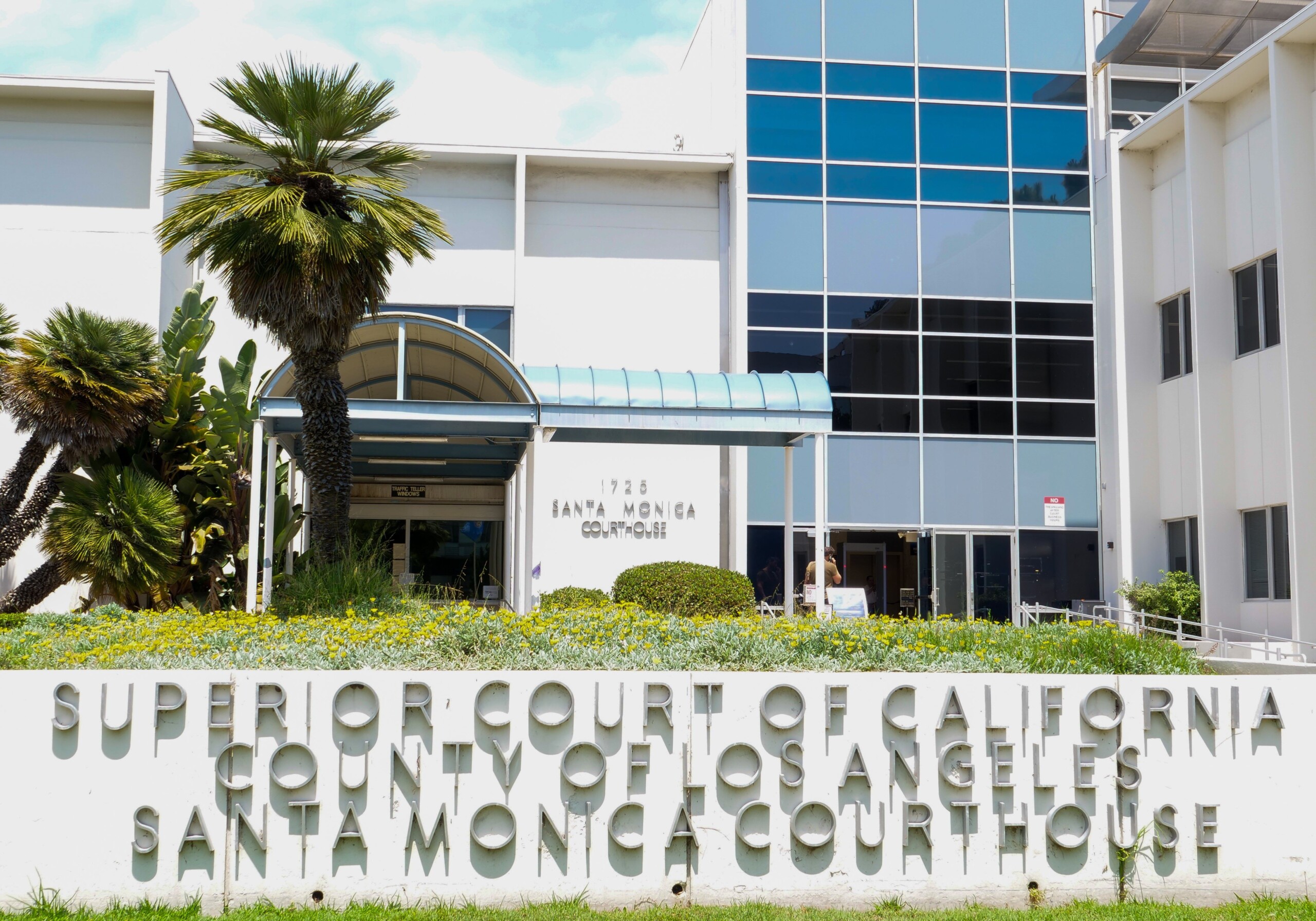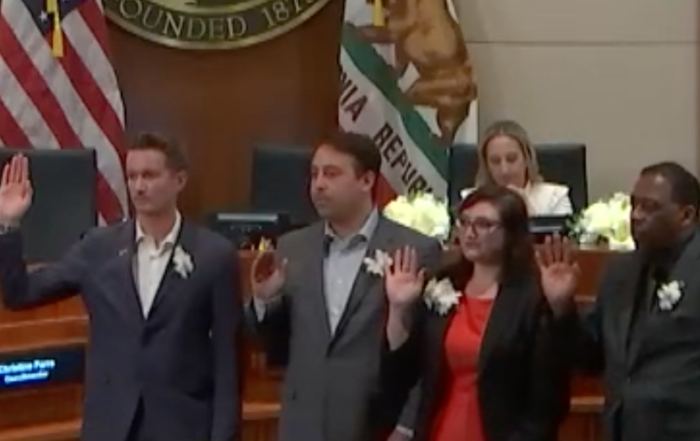Judge H. Jay Ford heard the closing arguments from the Barrington Plaza Tenant Association and property owner Douglas Emmett at the Santa Monica Courthouse on Monday. The case will determine whether the potential mass eviction of the tenants at the complex located at 11740 Wilshire Blvd. by the landlords for renovations is legal and permissible.
Both lawyers presented final arguments in a session that lasted about two hours, with the judge questioning both key facts and details that make up their party’s arguments. Judge Ford said at the hearing that he hoped to put out a tentative decision on the case within the next two weeks.
The Barrington Plaza case started last May, but its roots can be found over 10 years ago. There have been two fires at the complex since 2013, one of which resulted in a death. Having been built in 1962, fire sprinklers were not a requirement and were thus not installed in the building, which was determined to have exacerbated the fire issue in the building.
Under the pretense of installing these fire sprinklers and renovating the units in the building, Douglas Emmett is attempting to remove the 712-unit property off the rental market, evicting those in the 577 currently occupied units in the process. The landlord is trying to use the Ellis Act — the more familiar name of California Government Code Sections 7060-7060.7 — that means “To permit landlords to go out of business“ by giving them a legal avenue to evict tenants when attempting to do so.
The Barrington Plaza Tenant Association filed suit in response to these potential evictions last May, arguing that the use of the Ellis Act in this case was not valid because the landlord seemed to intend to re-let the units following the installation of these sprinklers— a notion which Judge Ford claimed he had seen “Substantial evidence” to support.
Judge Ford was very involved in these final statements, engaging with both lawyers on several issues he was set to make judgment on as part of the case. He clarified to both parties the aspects of the argument he was undecided on, most pertinently the interpretation of “Going out of business” as defined in the Ellis Act’s wording.
The defendants argued that the requirement simply meant that a landlord planning to use the Ellis Act simply needed the intent to remain out of the business for it to apply, noting the lack of a time specification for how long a property needed to stay off the market to qualify in the law’s text. On the other hand, the plaintiffs argued that the phrase “Go out of business” implies a more permanent cessation of operations.
The applicability of Los Angeles’ local Rent Stabilization Ordinance (RSO) and whether or not it was necessary to “Harmonize” it with the Ellis Act was one of the other primary topics of these closing statements and Judge Ford’s questioning. Most important is the fact that the RSO requires landlords to work with tenants through the Tenant Habitability Program (THP) when conducting significant renovations — one in which Douglas Emmett has not participated.
By participating in the THP, Barrington Plaza would assist tenants in moving into temporary living arrangements while the renovations were done and then allow them to move back in at similar rents when they are complete.
Lawyers for the landlord argued that the number of tenants made the THP unfeasible for this case, but Judge Ford noted that feasibility in this case was not correlated with the legality of declining to participate. They also argued that there was no need to interpret the laws in a way that allowed the Ellis Act and the RSO to coexist because the Ellis Act’s status as a state law allowed it to supersede the authority of the RSO.
Pushback on this point came as well for the tenants, whose lawyers argued that the attempt to avoid the THP and not treat the Ellis Act and RSO as harmonious laws that should be interpreted in a way that allows them to co-exist is potential grounds to claim a bad faith eviction.
Following the hearing, Larry Gross with the Coalition for Economic Survival — which has been deeply involved in defending the Barrington Plaza tenants — praised those with the Tenant Association and emphasized the importance of the fight they have been undertaking.
“It’s important that every tenant in this state knows you are on the front lines,” Gross said, “Of a decision that will affect every single tenant in a rent-controlled jurisdiction throughout the state.”
Photo by the author.
Stay informed. Sign up for The Westside Voice Newsletter
By clicking submit, you agree to share your email address with Westside Voice. We do not sell or share your information with anyone.








